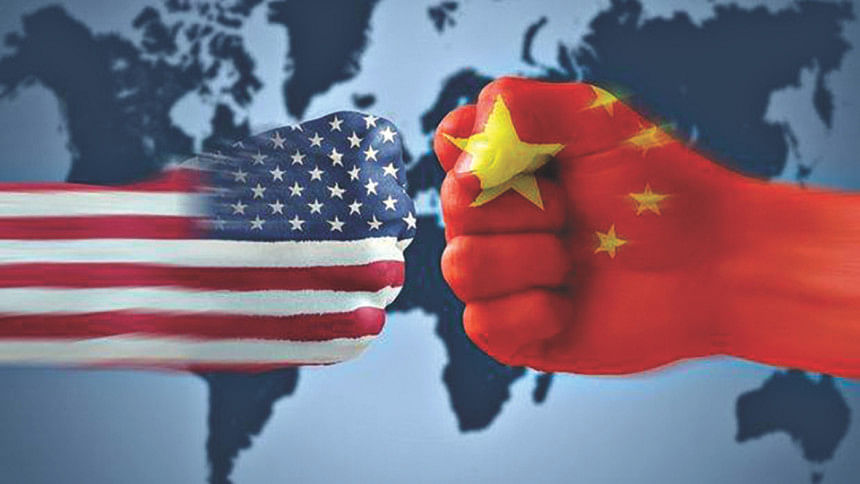US declares full-on rivalry with China

In the buzzwords of George W Bush's administration, China needed to become a "responsible stakeholder." For Barack Obama, China had an interest in embracing "the rules-based international order."
President Donald Trump's message to Beijing is, true to his character, starker. Trump, his Vice President Mike Pence vowed, "will not back down."
On Thursday, Pence delivered one of the most hawkish speeches by a senior US official since the two countries restored ties four decades ago.
Pence assailed China as a military aggressor, a prolific thief of US technology and, controversially, as interfering in American elections.
Yet in a sign that the United States still sees a need for China, Secretary of State Mike Pompeo will visit on Monday after his latest negotiations in North Korea, the nuclear-armed regime which counts on Beijing as its diplomatic and economic lifeline.
Pompeo, speaking to the traveling press on his way to Asia, said China was "determined to support our efforts" on North Korea despite the high tensions.
Pence in his speech said the United States still hoped for improved relations with China but otherwise drew a bleak picture.
He said the United States will keep ramping up its military spending to counter a rising Beijing and he renewed threats to more than double the $250 billion in tariffs placed on Chinese products.
"I do think that this marks a significant change in the bipartisan approach to China that has dominated over the last several decades," said Jamie Fly, a former official in the George W Bush administration who heads the Asia program at the German Marshall Fund of the United States.
Pence's speech "doesn't completely preclude cooperation on narrow areas like North Korea, but it's much more clear in the US assessment of Chinese intentions and China's goal of really replacing the US and pushing back US power," he said.
While Trump and Pence are polarising figures, the hard line on China has been increasingly shared across the US political spectrum.
US business leaders, who long advocated warm ties with China as they coveted the world's largest consumer market, have cooled markedly toward Beijing amid complaints of widespread industrial espionage, which Beijing denies.
A survey published in August by the Pew Research Center found that the percentage of Americans who viewed China favorably had fallen to 38 percent.
Former Australian prime minister Kevin Rudd, a Mandarin-speaking China expert who now heads the Asia Society in New York, in a recent speech said that "engagement," for decades the narrative in relations for both Washington and Beijing, "is now officially and effectively dead."

 For all latest news, follow The Daily Star's Google News channel.
For all latest news, follow The Daily Star's Google News channel. 



Comments